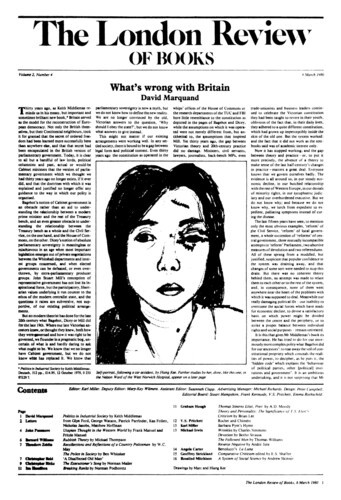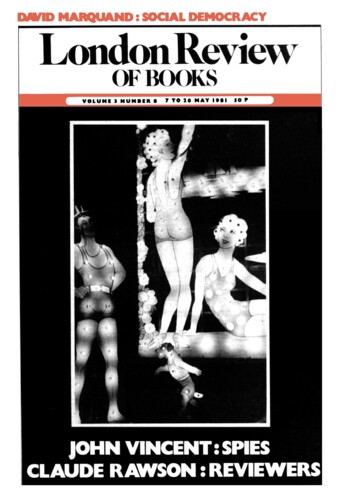What’s wrong with Britain
David Marquand, 6 March 1980
Thirty years ago, as Keith Middlemas reminds us in his messy, but important and sometimes brilliant new book, Britain served as the model for the reconstruction of European democracy. Not only the British themselves, but their Continental neighbours, took it for granted that the secret of ordered freedom had been learned more successfully here than anywhere else, and that that secret had been encapsulated in the British version of parliamentary government. Today, it is clear to all but a handful of law lords, political columnists and past, actual or would-be Cabinet ministers that the version of parliamentary government which we thought we had thirty years ago no longer exists, if it ever did, and that the doctrines with which it was explained and justified no longer offer any guidance to the way in which our polity is organised.





